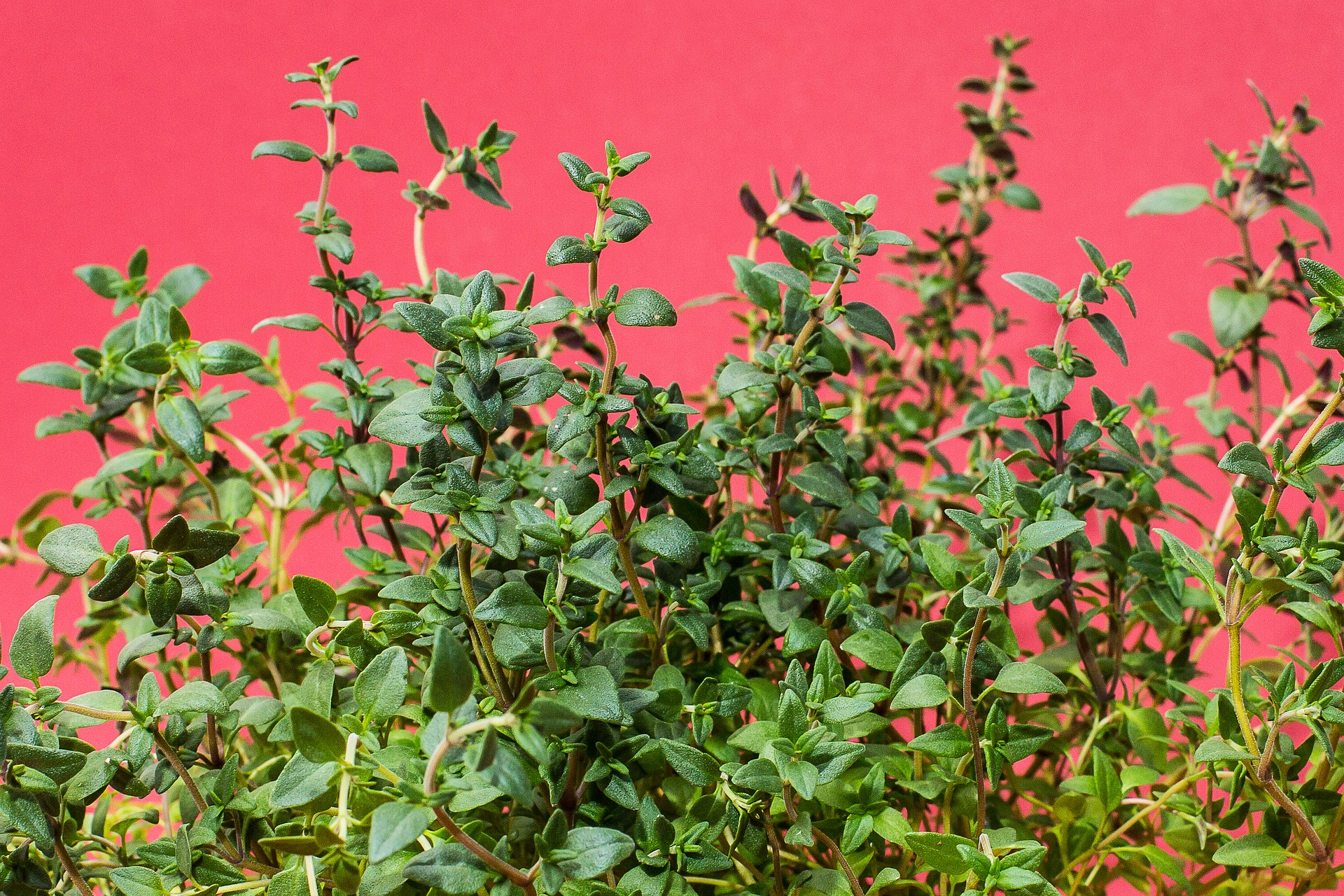

It purgeth the body of phlegm and is an excellent remedy for shortness of breath. N Culpepper writes that Thyme is 'a noble strengthener of the lungs, as notable a one as grows, nor is there a better remedy growing for whooping cough. It is an excellent weapon against epidemics and much cheaper than other methods of controlling them'. I do not know of any infection that cannot be mitigated if treated with this precious herb. 'From my long years of experience as a herbalist I can appreciate Thyme because of its antiseptic qualities its smell destroys viruses and bacteria in the atmosphere as it destroys infectious germs in the body. One renowned folk healer of recent times has been the French herbalist Maurice Messegue. Others derive the name from the Greek word thumus, signifying courage, the plant being held in ancient and mediaeval days to be a great source of invigoration, its cordial qualities inspiring courage' M Grieve writes 'the name Thyme, in its Greek form, was first given to the plant as a derivative of a word which meant 'to fumigate,' either because they used it as incense, for its balsamic odour, or because it was taken as a type of all sweet-smelling herbs. internally and as a compress for a chronic grumbling appendix.internal small doses for irritable bowel and colic.a mouthwash and gargle for ulcers or infections in the mouth and throat.~ Thyme’s other traditional uses include: Thyme also has a potent antimicrobial effect which speeds the resolution of infections in the lungs. In traditional medicine Thyme has first and foremost been a remedy for coughs that are dry, unproductive or painful, Thyme has a way of softening and loosening the cough to help the body do, with much less effort and discomfort, what it had been trying to achieve by coughing in the first place. Thyme is a tough little plant that may grow straggly under difficult conditions but is likely to survive nevertheless. It therefore sometimes takes 7-21 days for the shipment to get delivered to you depending upon your location.The dried leaves of Thyme, the familiar, low growing, woody, long-lived shrub with its distinctive scent. Shipping - To ensure fresh & pure products are delivered at your doorstep, we procure these directly from the Local farmers/ Women's Self Help Groups in small batches. The oil should also never be ingested instead, make the leaves into a tea or dilute the essential oil for a soothing compress. Holistic or homeopathic use of thyme should be avoided in children and pregnant or nursing women.
#Thyme uses in medicine skin#
In holistic medicine, thyme essential oil can be used diluted in compounds (never on its own, as the oil can be toxic in high concentrations) to relieve and heal infections of the skin and mouth. Thyme is also beneficial in aromatherapy, providing relief from respiratory ailments and stimulating immune and circulatory responses. Its active compound, thymol, is used in personal hygiene and home sanitizing products.

Thyme has a wide range of medicinal and home uses, owing to its antiseptic and antibacterial properties. Dried thyme leaves can be substituted for fresh in any application, but use one-third as much dried thyme as you would use fresh.
#Thyme uses in medicine full#
adding to a braised dish or bread dough)-in order to display its full range. While dried thyme possesses a nearly identical flavor profile to its fresh counterpart, it typically needs to be re-hydrated-whether on its own or during the cooking process (i.e. Lemon thyme’s citrus fragrance is the most prominent note in that variety. Fit for every diet and very rarely considered an allergen, thyme can be consumed by anyone looking to cook with fresh herbs.įresh thyme has a pronounced, concentrated herbal flavor with sharp grass, wood, and floral notes (like lavender and rosemary).
#Thyme uses in medicine free#
Grown Organically in the natural & pollution free hills of Ramgarh in Uttarakhand, the Himalayan Thyme can be used to season all kinds of dishes, either by itself or as part of a blend alongside other common herbs like rosemary, sage, and marjoram. They have culinary, medicinal, and ornamental uses, and the species most commonly cultivated and used for culinary purposes Thymes are relatives of the oregano genus Origanum. Thyme is a member of the genus Thymus of aromatic perennial evergreen herbs in the mint family Lamiaceae.


 0 kommentar(er)
0 kommentar(er)
